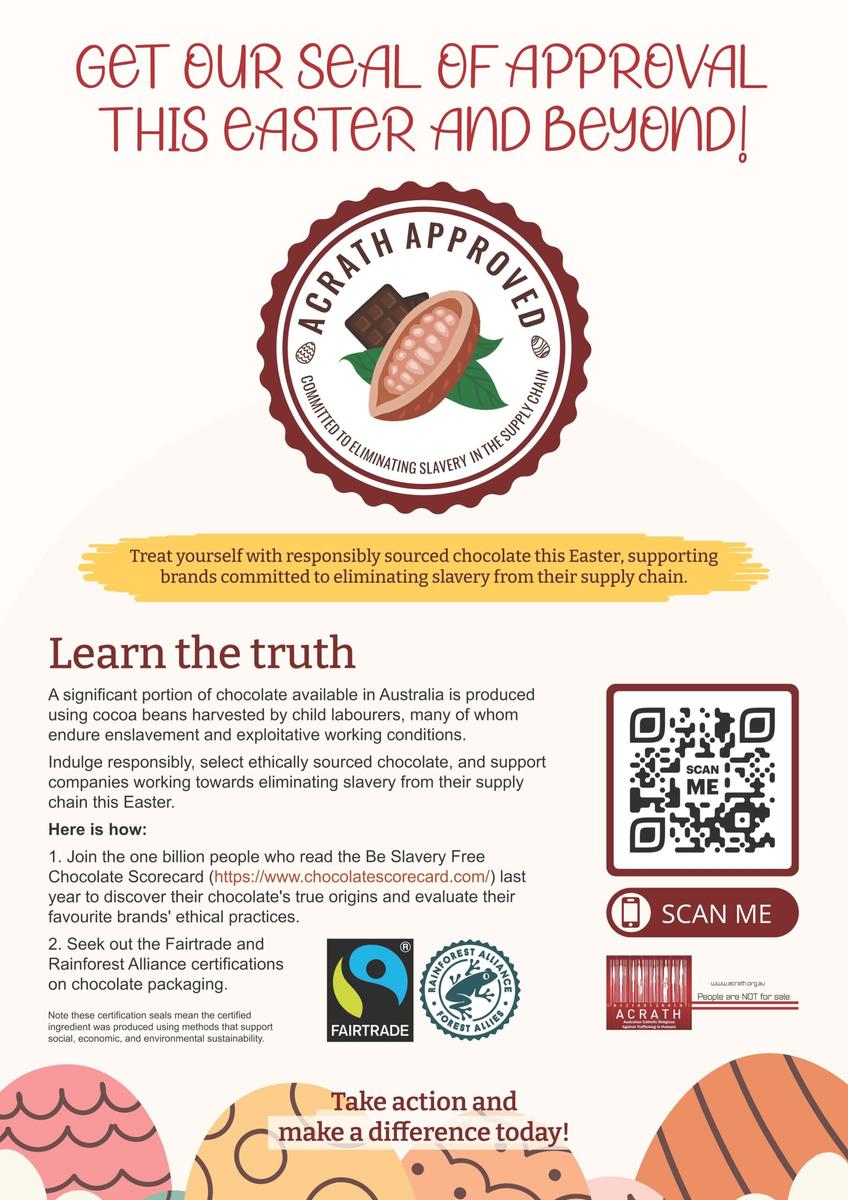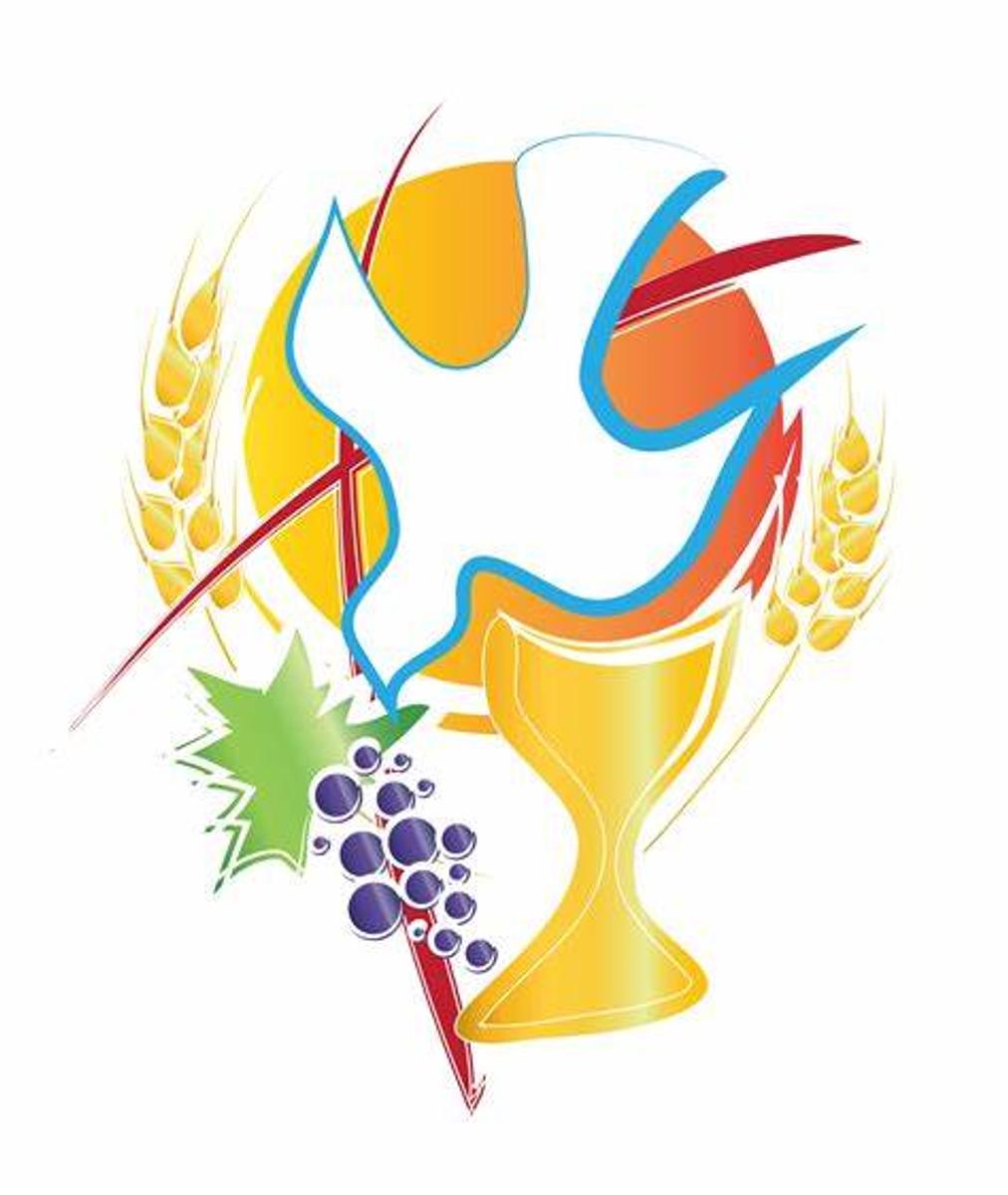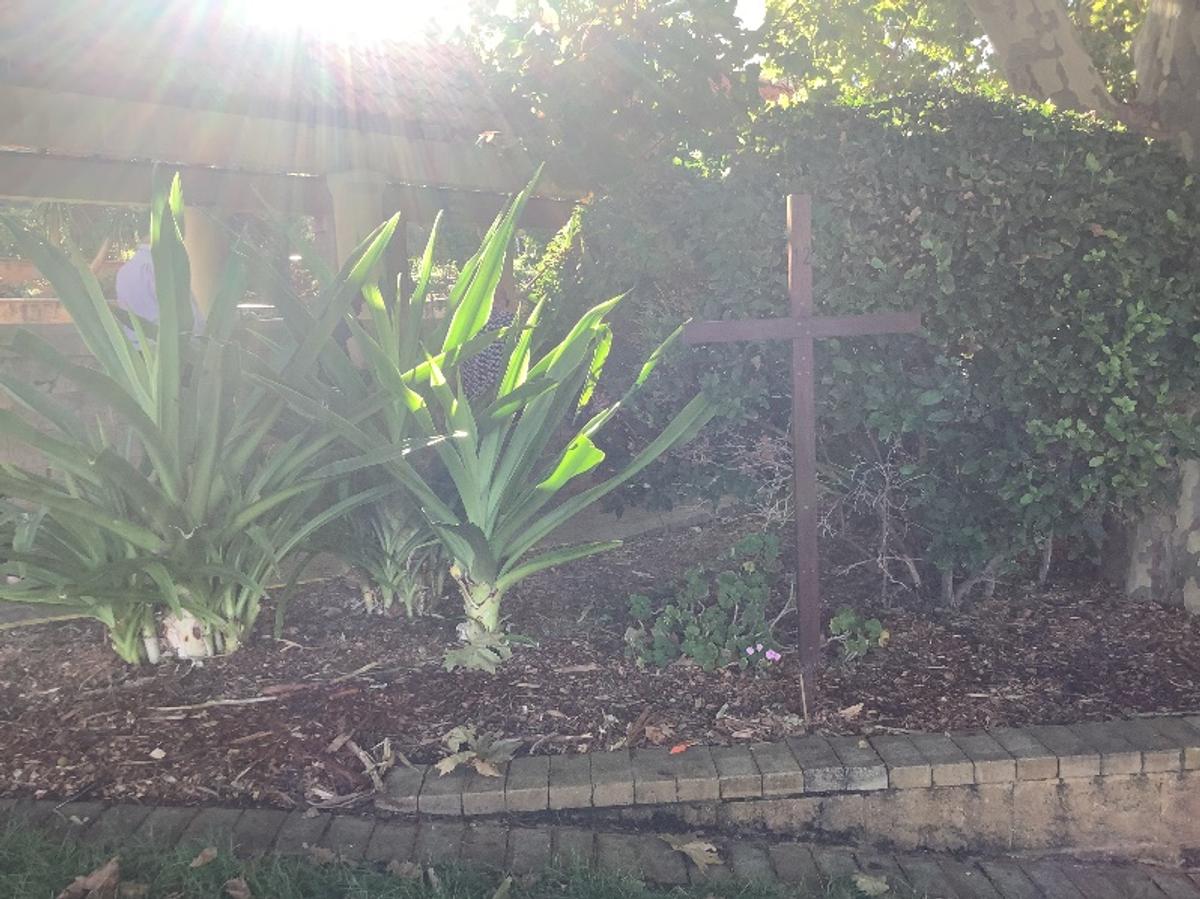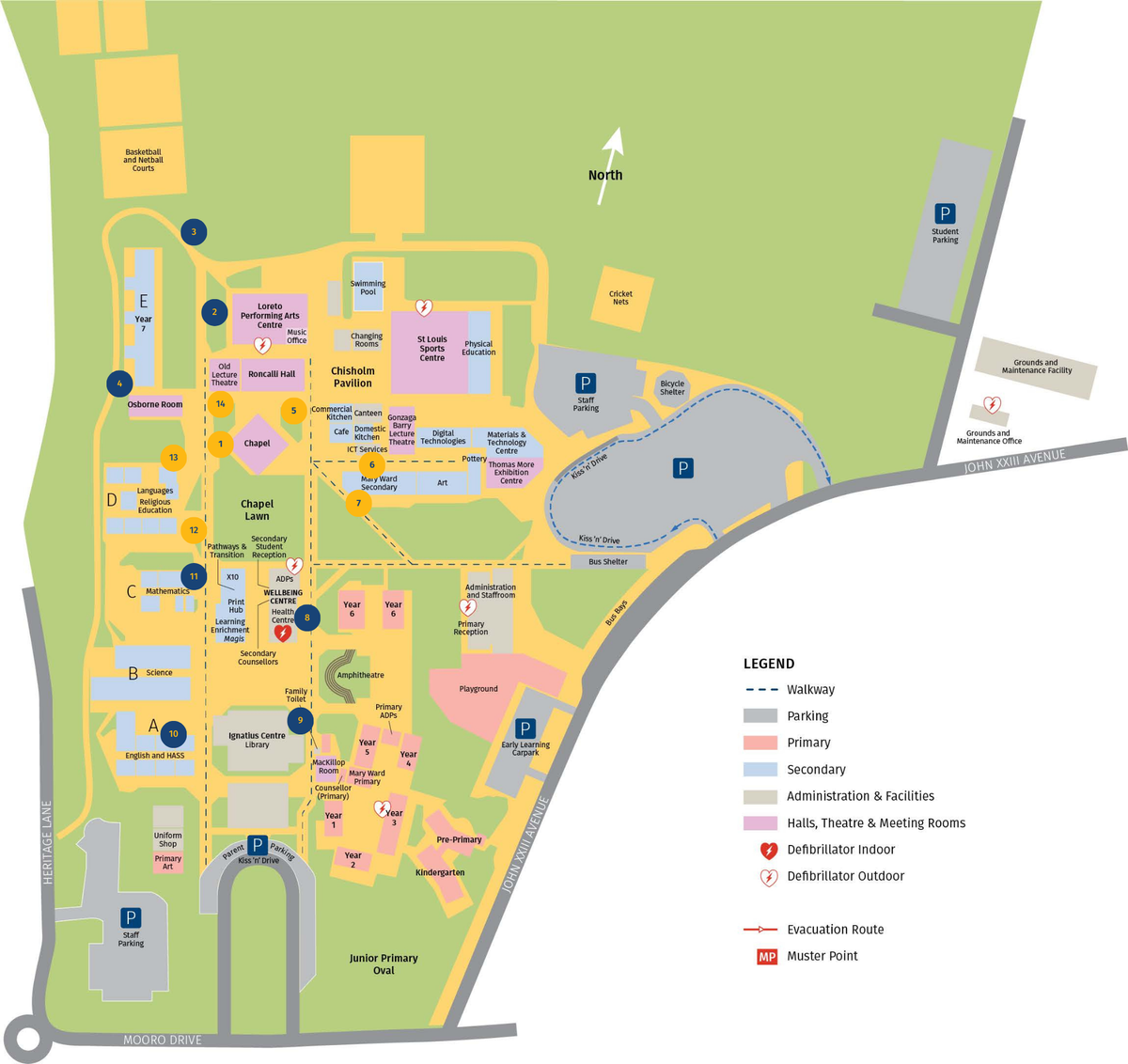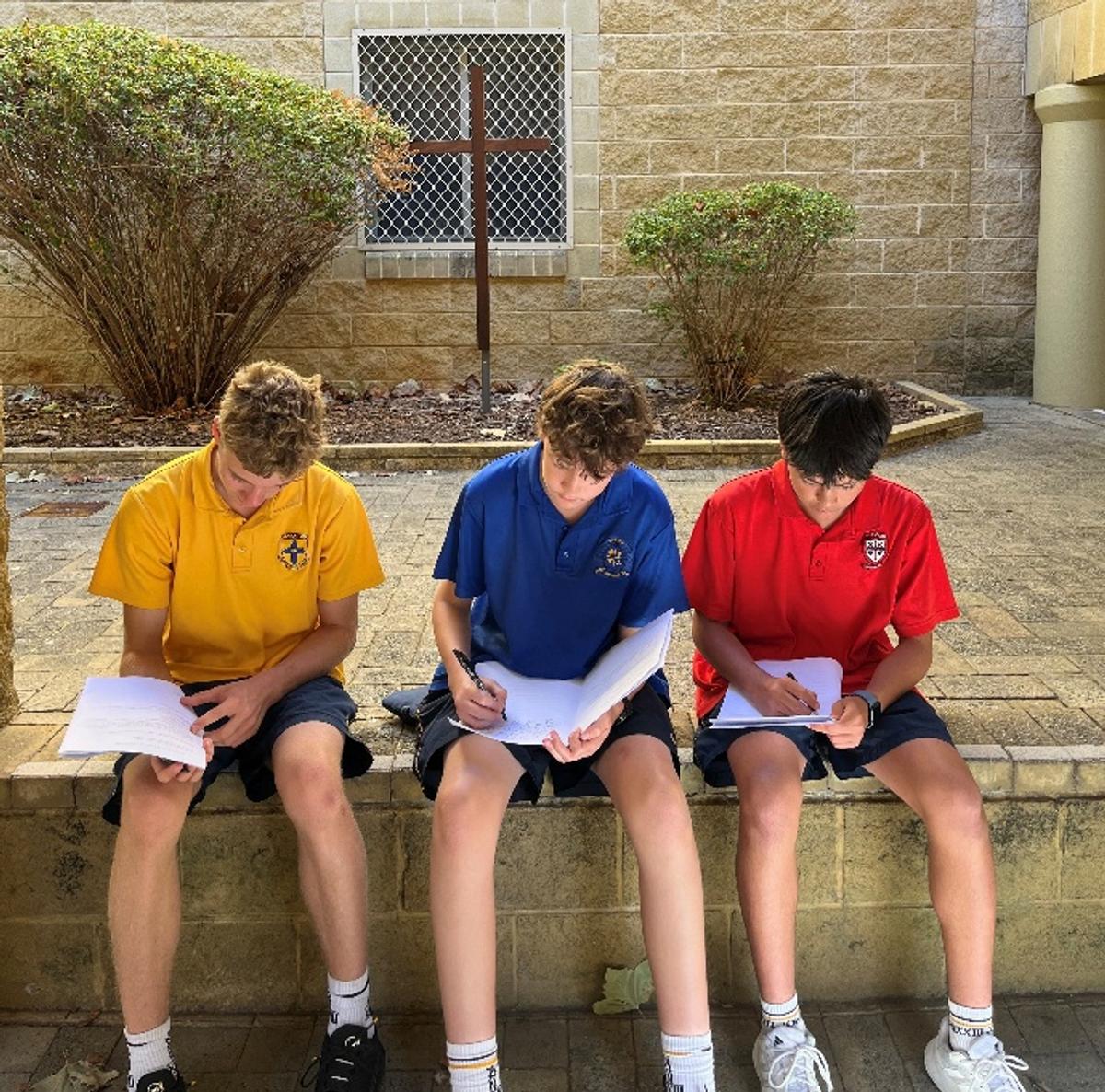Faith and Mission

This week, our Secondary student leaders participated in a workshop on servant leadership, exploring what it means to lead with humility, compassion, and a commitment to the common good. More than just a leadership style, servant leadership is grounded in Christian theology, calling each of us, not just those in formal leadership roles, to serve others in love.
The foundation of servant leadership is found in the life and teachings of Jesus Christ, who said:
' Whoever wants to become great among you must be your servant, and whoever wants to be first must be slave of all. For even the Son of Man did not come to be served, but to serve and to give his life as a ransom for many'.
(Mark 10:43-45)
This radical model of leadership stands in contrast to worldly views of power and authority that we are seeing so much of, of late. Jesus redefined greatness, not as dominance or control, but as self-giving service. The washing of the disciples’ feet at the Last Supper (John 13:12-17) is a powerful image of this. Despite being their teacher and Lord, Jesus humbled himself to serve, teaching that true leadership is found in lifting others up.
But servant leadership is not just for student leaders, captains, or staff; it is a call for every person in our community. We are all invited to lead by serving in our classrooms, families, and friendships. Whether through acts of kindness, listening to those in need, or standing up for justice and speaking truth to power, we become leaders when we choose to serve.
In this Jubilee Year of Hope, let us embrace the call to serve with love, knowing that in doing so, we reflect the heart of Christ.
ACRATH Slavery Free Chocolate Campaign
As we prepare for Easter, we invite our school community to make ethical choices by supporting ACRATH’s (Australian Catholic Religious Against the Trafficking in Humans) chocolate campaign. Is your chocolate sweet—or tainted by child labour? Download the ACRATH Seal of Approval poster, explore resources, and use Be Slavery Free’s upcoming Chocolate Scorecard to choose slavery-free treats this Easter.
Janeen Murphy
Deputy Principal Faith and Mission
Community Mass
Next Friday, 4 April, Community Mass will be prepared by students of Italian who are going on a study tour. All are welcome to join in praying for God’s blessing on our students and staff who are travelling during Week 10 and the holidays.
Holy Week commences on Palm Sunday – this year, 13 April, the first Sunday of the holidays. Holy Week, which includes Holy Thursday, Good Friday, Holy Saturday and Easter Sunday, is the most important week in the Christian calendar, with the feast of the Resurrection of Christ being the high point. Jesuit, Father Andrew Hamilton, gives us a thoughtful reflection on the significance and background of Holy Week – see below.
To recognise the importance of this week, our final Community Mass in Week 10 will begin with a procession of palms in the Library Courtyard at 7:30am. Thank you to our Years 7-11 Homeroom leaders who will arrive early to lead this procession from the Library Courtyard to the Chapel. Mass will begin around 7:50am, and we will proclaim the Passion of Jesus, from the Gospel of Luke. Families are welcome to Mass, or to gather at 7:30am for the procession!
If you have any questions about Community Mass, please contact Mary-Anne Lumley:
mary-anne.lumley@johnxxiii.edu.au
Community Mass Details
- College Chapel
- Fridays in term time
- Starts: 8:00am and concludes 8:30am.
Exception: Friday 11 April – Procession of Palms commences at 7:30am, Library Courtyard. Mass commences around 7:50am, Chapel
Sacraments
Do you have a child in Years 3, 4 or 6?
Students in these classes are respectively preparing for the sacraments of Reconciliation, First Holy Communion and Confirmation. It is imperative to enrol in a parish program as soon as possible as some parishes have already closed their enrolments for 2025.
Each parish has their own unique Sacrament program. Information from some local parishes is provided below and on the College website.
CLAREMONT – ST THOMAS APOSTLE
Currently accepting enrolments.
Contact: Silvia.kinder@cewa.edu.au
COTTESLOE – ST MARY STAR OF THE SEA
Confirmation – enrolments close Monday 25 August.
Enrol online here: Sacramental Programme | St Mary Star of the Sea & Corpus Christi Churches
Full details are available on the College website.
Further queries: Natasha Colli, sacraments.cottesloe@perthcatholic.org.au
Parents often have questions about the Sacrament program, so don’t be afraid to ask:
- Your parish priest or Sacrament Coordinator
- John XXIII College website
- The Archdiocesan website: Parishes & Mass Times
- Mary-Anne Lumley on email or via phone on 08 9383 0513
Way of the Cross
In this Jubilee Year, Catholics are called to be Pilgrims of Hope. During these first weeks of Lent, some Staff and Secondary students have made their own mini-pilgrimage of the Way of the Cross. The handcrafted wooden crosses are located at various points around our beautiful College Campus, and are numbered 1-14.
The Way of the Cross is a centuries-old Lenten tradition. It reminds Christians of the last hours in the life of Jesus, and of the great love that God has for humans and all of Creation by entering into our world and journeying in our own experiences, including pain, suffering and death.
Families are welcome to make their own mini-pilgrimage outside school hours, and can choose to stop at all 14 crosses or just a few.
Map of the Way of the Cross. Choose:
- All fourteen crosses (blue and yellow circles)
- Seven crosses (yellow circles)
- One or two crosses of your own choosing.
Pray your own personal reflection or use this ‘virtual’ Way of the Cross. Virtual Stations of the Cross - Busted Halo
Holy Week is a Heart Time
13-20 April 2025
The week from Palm Sunday to Easter Sunday is the richest and busiest time of the Church year. It took many centuries to take its present form. In the very early Church each Sunday was seen as a celebration of Jesus’ rising. Later Christians wanted a special feast to mark Jesus’ death for us and accompanied it by a long fast. For many centuries the Eucharist was celebrated only on Sundays, while people also gathered to pray on other days of the week.
Holy Week as we knew it developed after Christians were free to practice their faith openly. In Jerusalem they could follow the path of Jesus in his last week, beginning with his entry into Jerusalem through his Last Supper with his disciples, and concluding with his crucifixion and resurrection. For Christians it was a week full of processions through the city.
It began on Palm Sunday when the weekly Sunday Mass was preceded by a procession from the Mount of Olives during which people sang as they walked with palms into the Church. They gathered again in the church for prayers on Monday, Tuesday and Wednesday.
On Thursday afternoon, in memory of the Last Supper, they celebrated the Eucharist at which public penitents were reconciled with the Church. The Eucharist was followed by a procession to the Mount of Olives and an all-night vigil focused on Jesus’ agony there. Friday was devoted to a service to venerate the Cross, which had recently been discovered by St Helena. An afternoon service to recall Christ’s Passion was also held, followed by another vigil.
Saturday, during which people also gathered for prayer, concluded in an all-night Vigil in Jerusalem celebrating the rising of Christ. It culminated in the Easter Eucharist at which new Christians were baptised.
You can see from this description that for devout Christians Holy Week in Jerusalem was strenuous, sleepless and largely foodless. Their observance of Holy Week soon spread through the whole Church. The absence of a Eucharist on Good Friday was not an innovation. It reflected the normal practice of celebrating it only on Sundays. The celebration of the Eucharist on Holy Thursday, and much later on the other days of the week, marked a change in Church practice influenced largely by monastic life.
The history of Holy Week shows that during it Christians have always gathered to pray, to reflect and to act out the heart of our faith. This is Jesus’ death and rising. It invites us to enter imaginatively and through our actions as well as our thoughts the story of Jesus’ last days. Holy Week draws us beyond thinking about our faith from outside to feel with Christ as he endures his Passion, to be humbled when we see him wash our feet and feed us in the Eucharist on Holy Thursday, to stay with him as he hangs on the Cross on Good Friday, and to share his joy and life as he rises from darkness to light on Easter Sunday. Holy Week is a time for praying with our legs, eyes and heart as well as with minds and words. It is heart time.
©Andrew Hamilton
Holy Week in Parishes
Family celebrations of Easter are varied, and often include special food or traditions. Many families incorporate parish liturgies into their festivities. Some of our local parishes have supplied details of their Holy Week program and warmly welcome families with children to any or all of their liturgies.
You can find your parish here.
See below for specific details from some of our local parishes.
DOUBLEVIEW, OUR LADY OF THE ROSARY
PALM SUNDAY – 13 April
8.00am - Mass
10:00 am – with Procession of Palms
5.30pm – Procession of Palms; 6:00pm Mass.
HOLY THURSDAY – 17 April
7.30pm – Mass of the Lords Supper
GOOD FRIDAY – 18 April
10.30am – Stations of the Cross
3.00pm – The Passion of the Lord
HOLY SATURDAY – 19 April
7.00pm – Vigil Mass
EASTER SUNDAY – 20 April
8.00am, 10.00am, 5.30pm
More details below.
SCARBOROUGH, IMMACULATE HEART OF MARY
PALM SUNDAY – 13 April
Saturday 5:00pm
Sunday 7:30am, 9:30am
HOLY THURSDAY – 17 April
7.00pm – Mass of the Lords Supper
GOOD FRIDAY – 18 April
10.00am – Stations of the Cross
3.00pm – The Passion of the Lord
HOLY SATURDAY – 19 April
7.00pm – Vigil Mass
EASTER SUNDAY – 20 April
7:30am, 9:30am.

